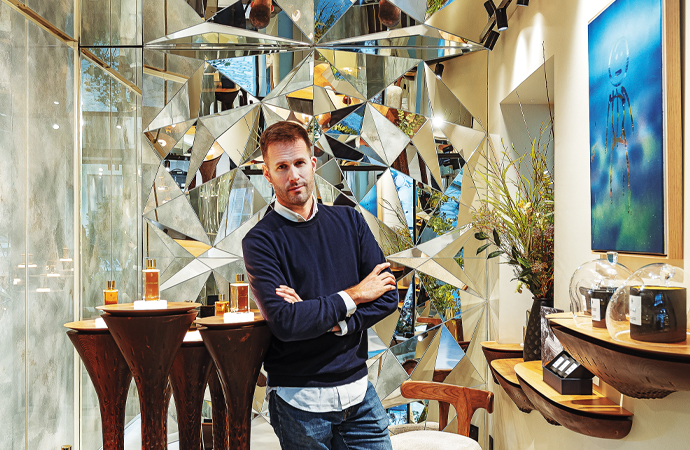Mastercard’s Chief Sustainability Officer on the Urgent Need for Corporate Leadership
The company has set a goal to be net-zero by 2040
April 13, 2023

Environmental, social and governance (ESG) principles and sustainability are now at the center of global issues and conferences like the World Economic Forum. This year we saw more than 60 chief sustainability officers participating in the annual meeting. It’s an important signal that the world is understanding the urgency of climate change and other social impact issues. Historically, there wasn’t really a role called “chief sustainability officer” (CSO). There might have been a sustainability team bolted onto the side of an organization rather than truly integrated into the full mechanics of the business. As CSO I have oversight of the governance structure of ESG strategies and report our commitments in our annual sustainability report.
The door is now opening for those of us in these roles to focus on identifying solutions. My team and I are very aware of external trends and innovations happening in other companies, and how we can speed up our own work. Networking with other CSOs is very important. I’m part of several groups where CSOs convene, such as 50 Sustainability & Climate Leaders and Corporate Eco Forum. And more are emerging every day. There’s a lot of energy in this space right now to bring us together, to share best practices and leverage ideas and solutions. Part of my job is to make sure that Mastercard is delivering on the changes we’ve committed to. Mastercard set a goal to be net-zero by 2040, which is ten years ahead of what climate science demands. It’s an aggressive leading goal. But because Mastercard is not a manufacturer, our carbon footprint size is relatively small. The bigger impact we can have, and contribution we can make to society, is in driving sustainable consumption and leveraging the power of the value chain. Mastercard touches three billion of the eight billion people on the planet. There’s an amazing opportunity to influence sustainable consumption. Our initiatives include the Carbon Calculator, which reviews the carbon impact of transactions included in monthly financial statements; the Priceless Planet Coalition, a program to restore 100 million trees by 2025, which currently has 100 partners; and the Sustainability Innovation Lab, dedicated to research and development of products and services.
Moving Fast, Moving Smart
An obstacle CSOs are facing is the pressure to move really fast in this space. Even the reporting aspect is a very nascent evolving area and will continue to undergo changes. When you think about the history of financial reporting, and the hundreds of years it has taken to perfect it, right now we’re trying to move as fast as we can knowing the urgency of this issue. We need to learn from mistakes and fail-ures and incorporate those learnings into improvement.
My first job in high school was scooping ice cream at Ben & Jerry’s. The two founders were some of the earliest doctors of integrating environmental and social impact directly into the core of their business. From an early age I had access to these ideas, how a corporation could help impact society from an environmental and social point of view, not just from a view of profitability. I’ve always had a strong drive to ensure I’m contributing to the community through my professional work. I’m thrilled to be part of a company like Mastercard that shares the same values that I have and is committed to solving global problems.
Ellen Jackowski is the chief sustainability officer of Mastercard, where she is spearheading the integration of the company’s environmental, social and governance strategy. She served as chief impact officer at HP. She is part of the advisory board of the Ocean Plastics Leadership Network and an advisor on the World Economic Forum’s Champions for Nature community.
As told to Eden Herbstman.




